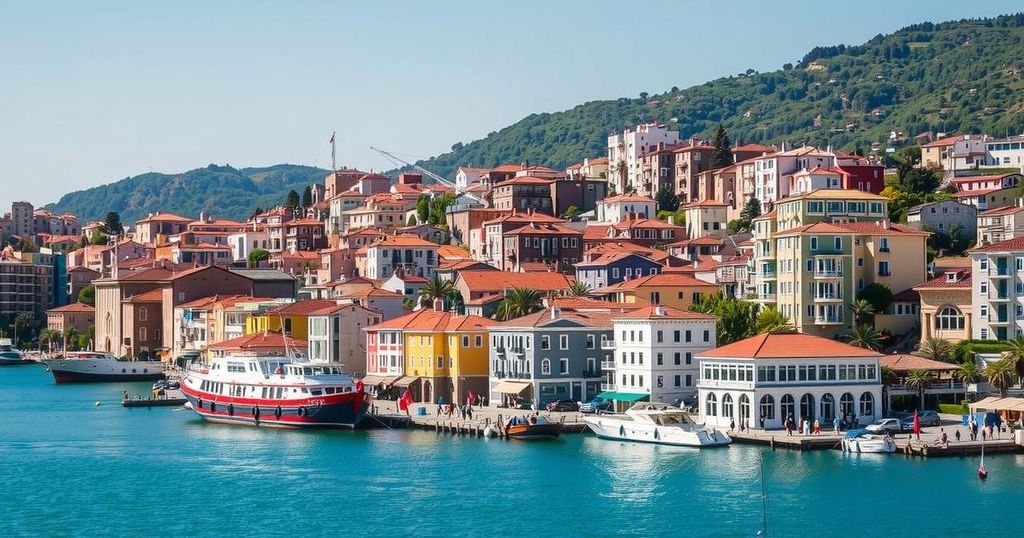Lebanon’s New President: A Path Towards Stability Amid Weakened Forces

Lebanon is at a pivotal moment with the election of President Joseph Aoun amid the weakening of Hezbollah, Iran, and Syria’s influence. His presidency could either herald reform and stability or further entrench the corrupt political status quo. The international community holds significant influence, while challenges remain regarding Hezbollah’s disarmament and reestablishing the state’s authority.
Lebanon is poised for potential benefit amidst the weakening influences of Hezbollah, Iran, and Syria. The recent election of Joseph Aoun as president marks a historical milestone, raising questions about his ability to steer the nation towards reform and stability or simply serve as a placeholder for existing political dynamics. The backdrop of a disjointed parliament and regional complications, including the consequences of recent conflicts involving Iran and its regional allies, complicates Lebanon’s path forward.
Historically, Lebanon’s stability has been dictated by a fragile balance of power among various factions, compounded by influences from external forces such as Israel and the Palestinian conflict. This internal strife and external pressure have often left communities vying for power without equitable representation. Joseph Aoun’s presidency, however, may signal a new direction if he is akin to former president Fouad Chehab, who successfully navigated similar political waters in the past.
Aoun’s incoming administration confronts a substantial to-do list, especially in light of the previous reliance on a formula that allowed extrastate actors, such as Hezbollah, to wield significant political power. However, the recent decline of Hezbollah’s political dominance has opened a window for reconstituting Lebanon’s governance. Aoun’s leadership will inevitably be judged on his resolve to push for disarmament of Hezbollah in order to restore the state’s authority, a challenge complicated by the group’s longstanding military infrastructure and support.
The ongoing political contention between reformists and entrenched elites may dictate the new government’s structure. Preserving the status quo would likely stifle initiatives aimed at reviving state institutions efficiently. Aoun’s emphasis on a “policy of neutrality” aimed at mending relations with estranged Arab nations will be critical in solidifying support for his government.
Essentially, Aoun’s effectiveness in restoring stability will depend greatly on key appointments within the new government and ensuring they reflect Lebanon’s diverse sociopolitical landscape. Regional and international support is crucial but must be approached with caution, given the persistent threats posed by Iran and its affiliated groups. Failure to transition away from historically entrenched political practices could jeopardize Lebanon’s opportunity for lasting peace and economic recovery.
Lebanon’s trajectory has historically been influenced by a complex interplay of internal sectarian factions and regional dynamics, including the implications of the Palestinian conflict and Israeli relations. The country has often found itself in a precarious balance where external forces, particularly Iran, along with militant groups like Hezbollah, have wielded considerable influence over local politics. The recent changes, particularly a shift in regional power dynamics and the weakening of Hezbollah, present a pivotal moment for Lebanon’s governance and stability. Joseph Aoun’s election arrives at a crucial juncture as Lebanon seeks a path towards significant political and economic reforms after years of turmoil.
The election of Joseph Aoun as president presents Lebanon with a critical opportunity to reshape its political landscape and foster stability, provided he can navigate the intricate challenges posed by entrenched political elites and militant influences. The international community’s support alongside Aoun’s commitment to upholding state authority and disarming Hezbollah could set Lebanon on a trajectory towards recovery, marking a decisive step away from decades of corruption and instability. However, the success of these efforts hinges on the formation of a government that prioritizes reform over the preservation of the status quo, ultimately determining Lebanon’s future prosperity.
Original Source: www.arabnews.com








